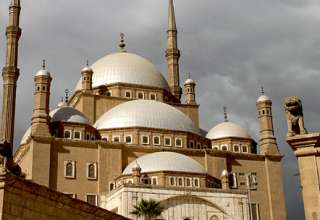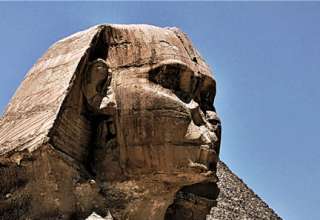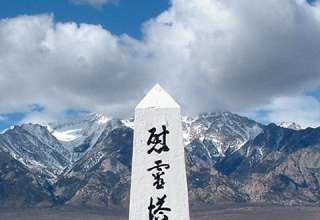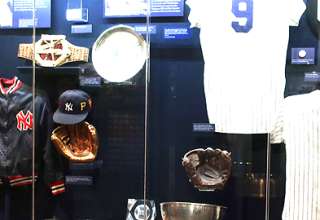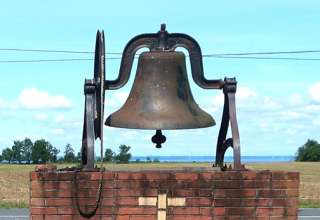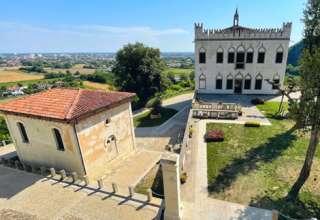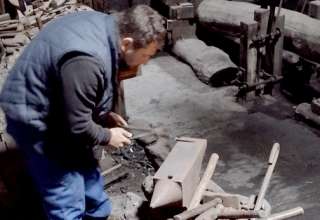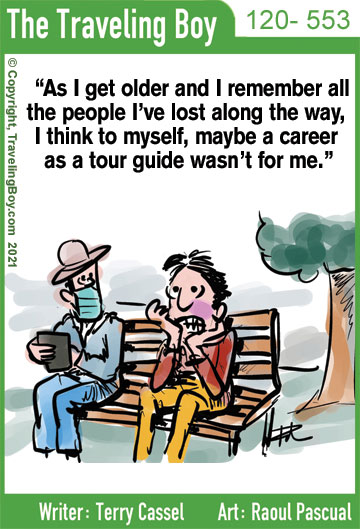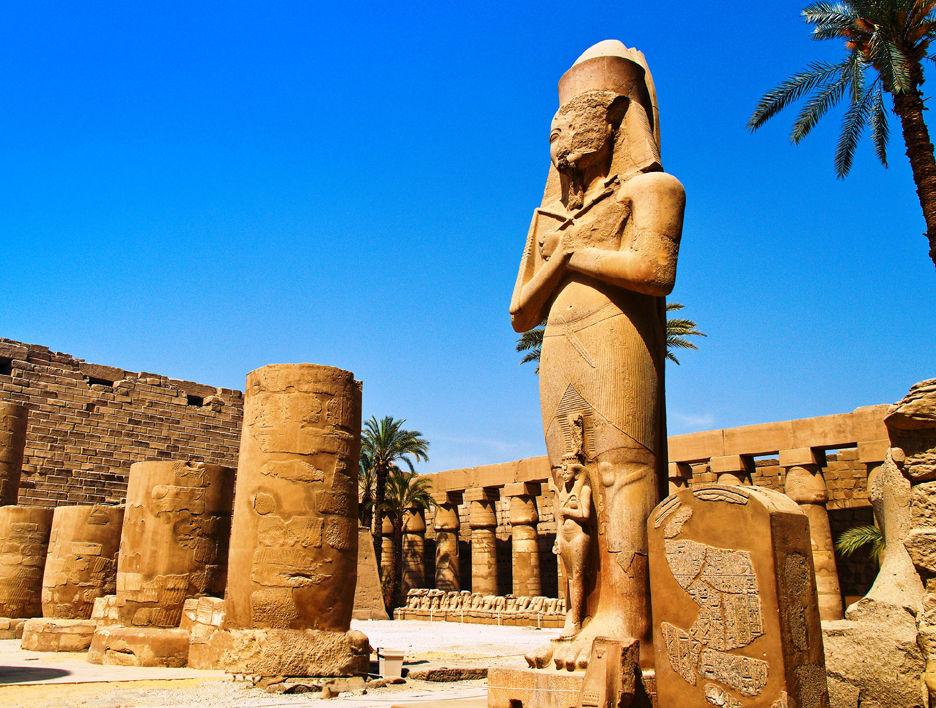
Traveling through Egypt on Overseas Adventure Travel’s (OAT) Ancient Egypt and the Nile River Tour took us to all the highlights: Egyptian Museum – check; Step Pyramid – check; King Tut’s mummy – check; Karnak Temple – check; Valley of the Kings – check; Abu Simbel – check; Giza Pyramids – check; the Sphinx – check. Those 6000 years of history alone would have made it an astounding trip, impossible to wrap one’s head around. And, I suspect, pretty much parallels the itinerary of most tours to Egypt.
But OAT, as always, does more – and deserves more than an afterthought in any travel article about one of its tours. First, OAT places great importance on the philosophy of Learning and Discovery which OAT takes very seriously – and our guide, Hussien, even more so – which elevated an already enticing itinerary to a far more immersive travel experience. Hussien, whose Ph. D. in Egyptology made him astoundingly knowledgeable and whose sense of humor, abundantly entertaining, and whose honesty left no controversial question unanswered and no subject off the table. The good, the bad and the ugly, was his mantra. This WAS Egypt, after all.
He also delighted in expanding the limits of our proscribed itinerary in several ways. First, OAT encourages exploration and the personalization of one’s own experience. There are always options of things to do during free time but if tour participants have sightseeing ideas of their own, Hussien would work to make it happen, either in addition to the itinerary – or even in place of it. Flexibility is paramount.
But where OAT shines are the encounters experienced outside the itinerary. While walking one of the streets of Cairo, Hussien randomly approached several young girls sitting on a bunch and asked if they would be willing to talk to us: two wore hijabs, one more western attire, and two were Coptic, Egypt’s Christian minority. That insight alone was meaningful to all of us.
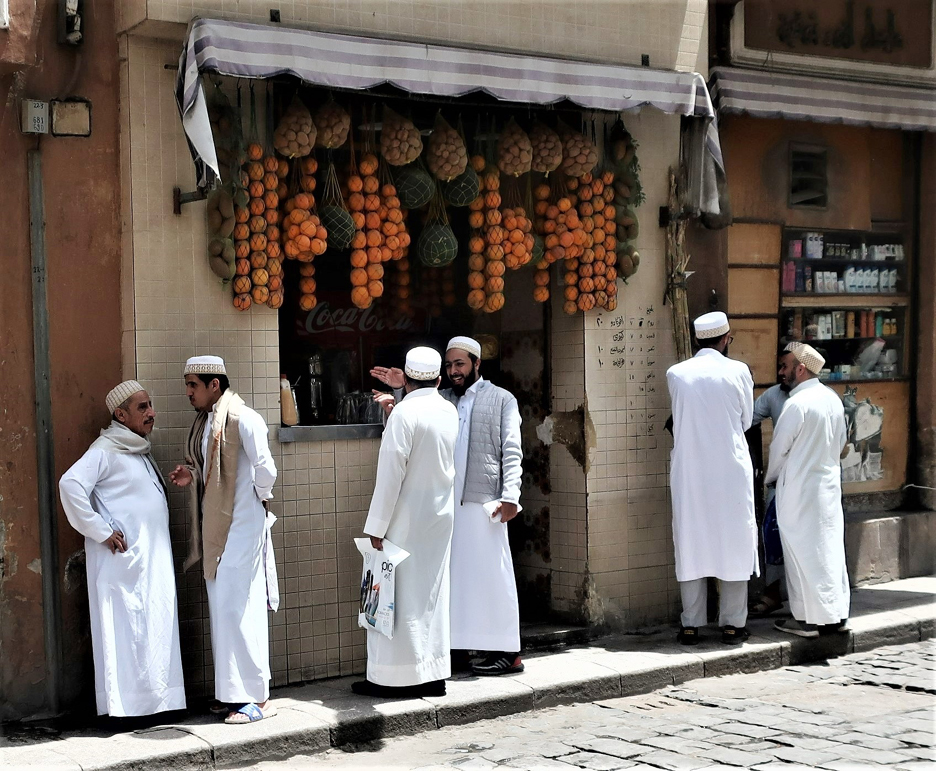
A lively discussion ensued which dealt with their schooling, their free time, and the fact that they were not the least bit interested in marriage. A disappointment to Hussien who was looking for his second wife (Just kidding, Hussien…). Interestingly, they didn’t want their pictures taken despite the fact that every one of them had a cellphone in hand. Another day, we spoke to a young lad studying English literature whose English was probably better than mine as was his knowledge of John Dunne. You don’t learn these things just hanging out with your tour colleagues.
Another day in a Cairo market, no doubt a regular destination for most tours, but again, OAT adds another dimension. We spent considerable time with a spice merchant, who described the intimacies and intricacies of his many spices from the basic oreganos and cinnamons to the more exotic fenugreeks and corianders, both used individually or in combination with others. Many in the group left with their favorites and I had to deal with the unfortunate fact that obviously many more people actually cook meals than I wanted to personally acknowledge…
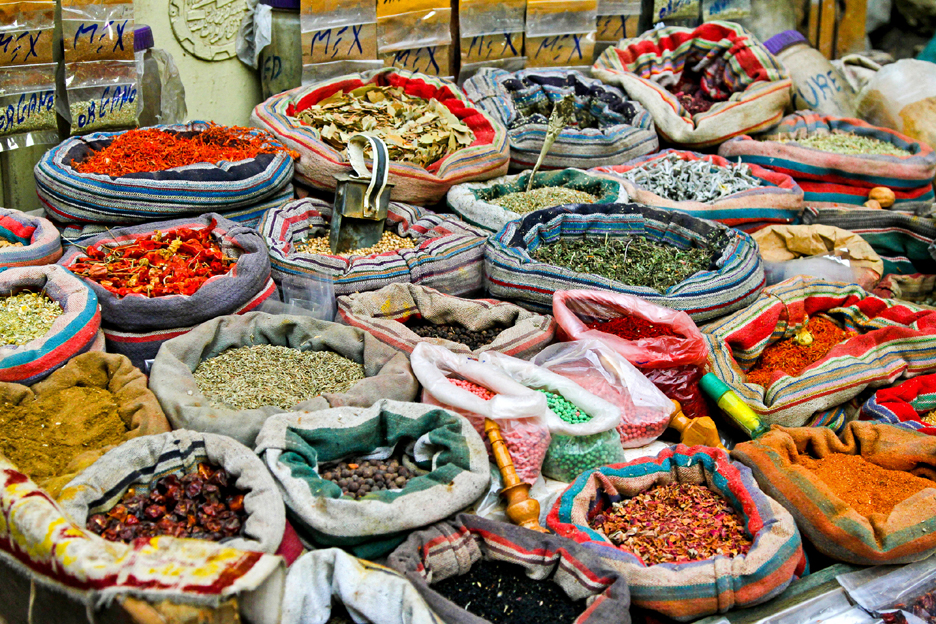
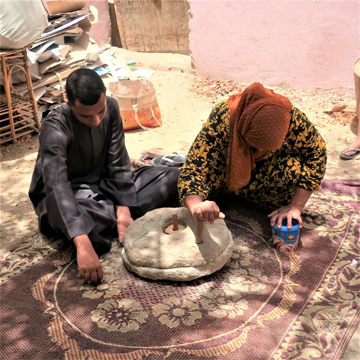
And in addition to an itinerary that covers all the must-see attractions that define a trip to Egypt, OAT also focuses on immersing its clients in the culture and life-style of a destination often over-looked by other tour companies. A Day in the Life of a Farm Family brought us in close contact with a village, its inhabitants, their way of life. We spent the day interacting, observing, participating – and helping in the creation of a meal using techniques practiced for 5000 years. Said our host: If you sit with us, eat with us, talk we us, you are part of our family. And indeed we felt that way.
Dinner with a Coptic (Christian) family provided further insights into a part of Egyptian society rarely included in a mainstream itinerary. We learned about their history in the country and the prejudice they suffered under the Muslim Brotherhood control of the government in 2012. The current government under Abdel el-Sisi has provided them new protections – and as controversial as el-Sisi is outside Egypt because of an abysmal human rights agenda and lethal treatment of his opposition, he is better regarded in much of the country because of some level of economic stability and numerous improvements in infrastructure. Again, the good, the bad and the ugly…
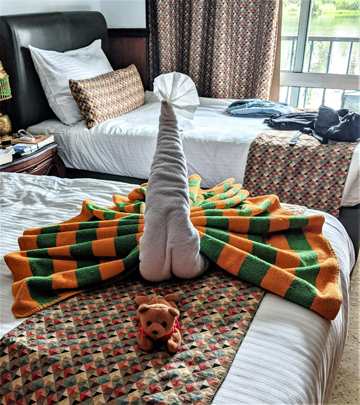
And finally to the boat and our trip down the Nile, which I’d been anticipating since I first viewed it from our Cairo hotel balcony. Blue waters, green fields, yellow mountains beyond – and history everywhere. Once again, OAT prevails as it owns the boat – one of the only ones with balconies – and is limited to the 75 passengers on the tour. Makes for a very homey journey. Towels on our bed shaped daily into various animals never failed to delight. Our daytime tours were divided into small groups, each with its own guide – and personal listening device.
Sailing down the river, where close to 95% of the population lives, you’d never know that Egypt is over 90% desert. The warm breeze negates the 105 degree temperature reading. The river controls the Egyptian lifestyle from fishing to agriculture to trade to family. The opening of the Aswan Dam in 1970 irrevocably changed Egyptian life by making electricity readily available – even to small villages – as well as curtailing the floods that used to destroy them.
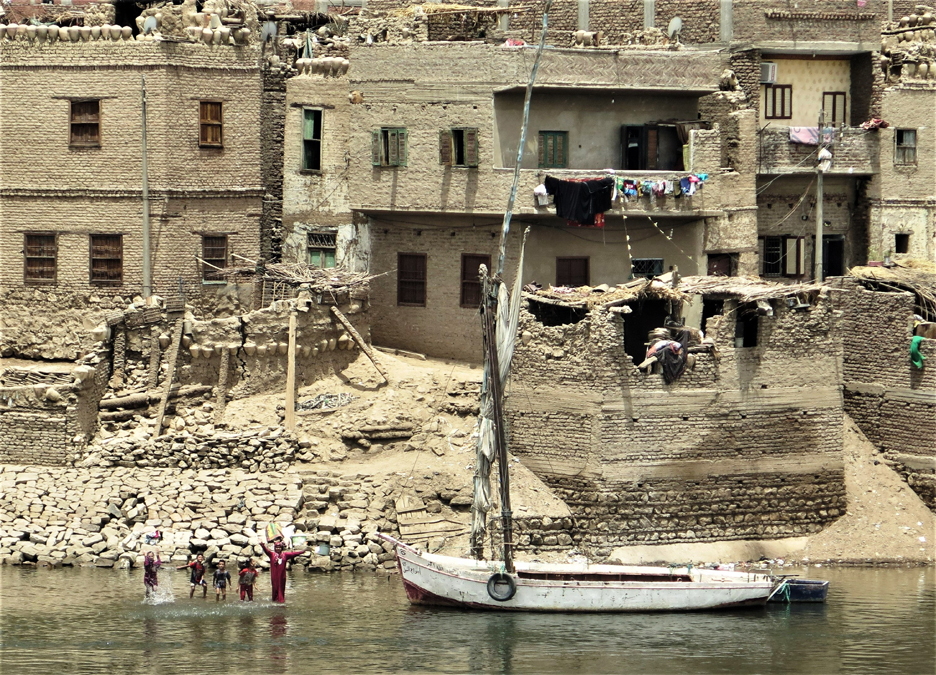
Sitting on the sundeck, I thought back to just two weeks before when I was staring up at the movie screen, mouth agape, at impossibly huge carved stone structures encased in Egyptian pyramids and temples as part of Death in the Nile, the most recent film version of the Agatha Christie classic. The seemingly futuristic CGI creations are instead impossible-to-imagine historic wonders from 6000 years ago.
And now I was staring up, mouth still agape, at the very same wonders, only this time from the deck of my own Nile River boat.
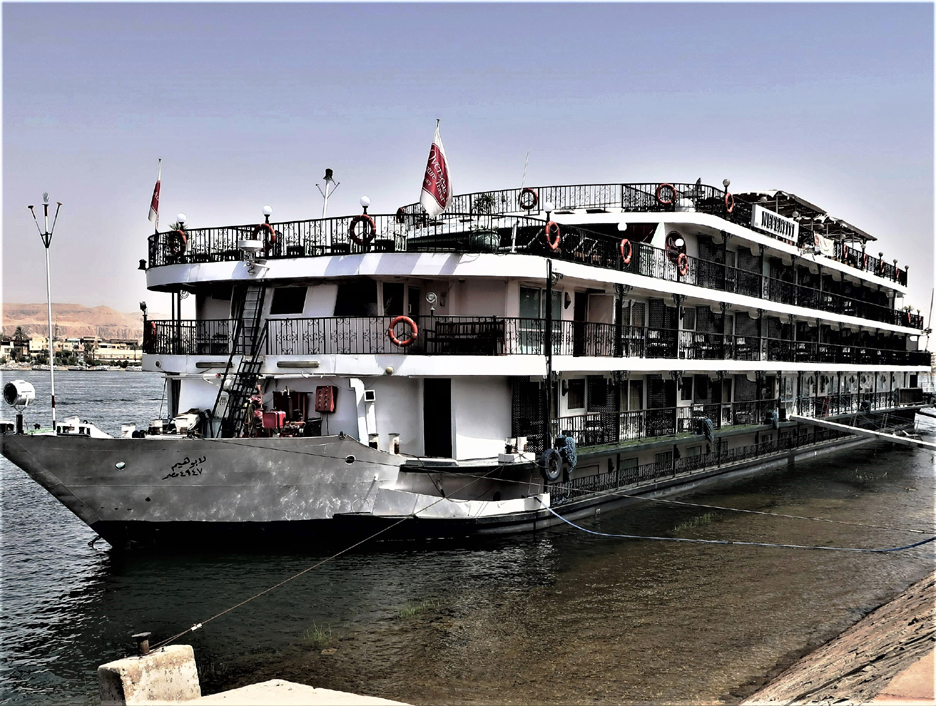
Bus rides, an inevitable part of touring, are more than transport from one spot to another with OAT. Unlike other tours I’ve traveled with, in which the tour leader sat next to the driver and ignored the rest of us until we arrived at our destination, Hussien kept up a running commentary that enthralled us as we traveled. We learned so much about the Egyptian way of life, political, cultural, personal – as fascinating as the itinerary itself – and not the least bit sugar coated. We were encouraged to ask any question about Islam, the government, the culture – without concern that it might be offensive. He often gave several sides to controversial issues – which OAT not only does not shy away from but encourages the discussion of.
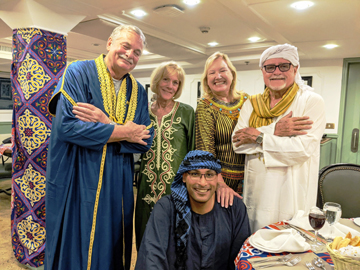
Controversial discussions are actually built into the itinerary. One evening’s Controversial Subject was about the role of women in Egypt – and how it is stymied as well as changing – conducted by Selma, a young single, working women with a BA in sociology who approached the topic from many angles: from the importance of modesty in dress from burkas to hijabs to modern clothes; workplace challenges; divorce, faith as a personal choice vs. imposition of men, and safety issues.
And everywhere we went, Hussien warned us off all the vendors – the Valley of the Vultures, so named: do not stop; do not make eye contact; do not look at anything they have no matter how low the price. It is useless junk and you will be taken! Nothing discourages them so just say no repeatedly and accept that this is part of the experience.
Needless to say, this will not be the part of the experience you remember. Six-thousand years of magical history and OAT’s unique presentation of it will remain with you long after the harassment.
For more information, visit OAT Travel Tours.
